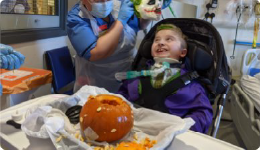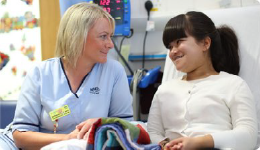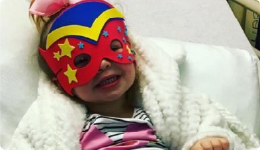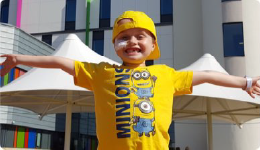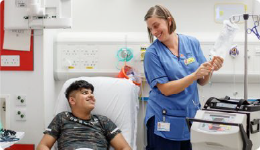Eating a combination of foods from all the different food groups will give your child all they need to grow and develop.
- Offer three regular meals and two or three healthy snacks.
- Portion size will gradually increase as they get older, let them guide you.
- Give small amounts with the option of more if they want it.
- Keep encouraging them to try new foods.
- Let them see you eating healthy foods you enjoy.
- Involve your child in meal planning and preparation. They are more likely to eat something they have helped to prepare.
From 2 years of age, you can start looking at the Eatwell Guide for healthy eating advice. Before the age of 2 babies and toddlers need a full fat diet, which is relatively low in fibre. Between the ages of 2 and 5, children should gradually move to eating the same foods as the rest of the family, in the proportions shown in the Eatwell Guide. Anyone with special dietary requirements or medical needs might want to check with a registered dietitian on how to adapt the Eatwell Guide to meet their individual needs. From 2 you are looking to SLOWLY introduce more fibre and lower the fat content but only if your child is eating well (like swapping to semi–skimmed cow’s milk).
You can find more tips and ideas using the links below:
- Parent Club
- First Steps Nutrition Trust Eating well in the early years
- British Dietetic Association
- Childsmile Snack Ideas for Children


 Every child grows and develops in their own time. If you are worried about your child's development then speak to your Health Visitor, Family Nurse or GP.
Every child grows and develops in their own time. If you are worried about your child's development then speak to your Health Visitor, Family Nurse or GP.



